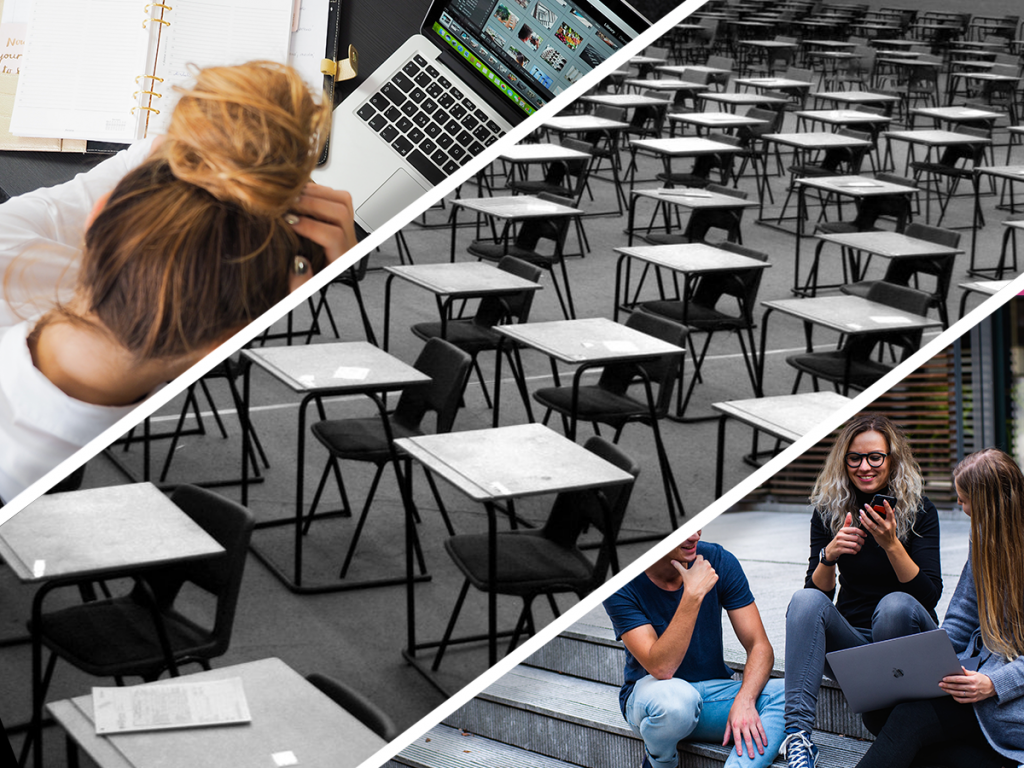Following the busy exam and deadline period, Laura Gray Nunez reflects on the ways in which she copes with the stress of studying.
Exam period can be stressful, especially for people who suffer from anxiety. However, there are many tips, techniques and habits we can develop to make it less stressful and to be able to focus, be healthy and happy during exam and revision periods. Procrastinating or getting easily distracted is not a difficult habit to fall into, but here we have some tips on how to approach exams in the best way in order to remain calm, healthy and hardworking.
What helped me the most is starting a few weeks before the assignment is due. The “you” of the future will definitely thank you for your ability to plan and will allow you to complete the assignment in constructive and calm manner. To achieve this and stay organised, it is also necessary to keep a schedule that, although structures your day, ensures that you can be flexible. This will mean that you will not punish yourself for not studying or being as productive as you thought you could be.
Expecting too much of yourself and being a perfectionist can lead to punishing yourself when you have breaks, but it is important to remember that this is normal. Keeping an adaptable schedule means that when you have a creative streak or a will to work, it will have a better sense of clarity!
Personally, I find it easier to cope with the sheer amount of work I have when I set a few days of the week to be particularly encouraged to do work, rather than a pressurised week full of working and studying. Lots of people fall into the trap of following the cliché of “if you make a schedule, stick to it!” but for me, this creates a lot of pressure and anxiety.
This is a learning process. If you need to alternate your studying methods and schedules, be respectful to yourself and do it to study more productively rather than forcing yourself to follow a method that does not work for you.
I have also found that I was never happy with exams until I was happy with myself! For this it is important to eat well (three meals a day that fill you) and be healthy. It is also essential to sleep approximately 8 hours a day, as ‘all nighters’ can affect your thinking ability, mood and emotions, and is not worth the lack of productivity just because you want to cram in as much content from your course as possible. Your memory will not be able sustain the information through a tired brain.
It is also important to leave some time to do activities you like, specifically sport or going outside, even if it is just to buy groceries. By dedicating time to yourself and your healthy eating, you will definitely feel better after during this particularly stressful time. I have found that an organized study space and doing important tasks, such as clothes washing and making your bed, before studying is important so that you are not thinking about other things during a productive time.
Psychologically, it is important to speak nicely to yourself and reward yourself as many times as needed through taking more breaks. Punishing myself for taking breaks just makes the cycle of anxiety and self-doubt bigger. So, we need to learn to compromise work with basic needs, finding a middle ground. The Pomodoro technique is a very helpful way of approaching this type of study, with 25 minutes of solid work, and a 5 minute break to relieve any stress or do a task, is an effective approach to studying and deadlines.
Personally, I love vlogging, so making aesthetic notes and taking pictures of my work or videoing my studying helped me to start to think of the entire process as more enjoyable. Approaches such as the buddy team system, which means studying in a group to encourage you to study, getting a lecturer to help, even if they are just going through basic information with you, and keeping a checklist of the chapters you would like to cover and ticking it off when studied. All of these different ways to study help and result in a better working environment, and therefore a better understanding overall.
Lastly, you may try the S3QR method: Survey, Question, Read, Recite, Review. First skim through the material and focus on headings and bold concepts. Then, ask yourself questions related to the topic. For the third step, read the text carefully and respond to your questions formulated in the last step, and tell yourself out loud the answers to the questions. Lastly, review. Go over what you have done and what you have written once more and read it out loud.
However, to feel comfortable and prepared when you begin to study and complete coursework is the most important approach to take the stress off studying, so we do not procrastinate, and it does not seem like too big of a mountain to climb!
Design by: Sarim Mangi (Head of Design)
Edited by: Zoe Powell (News and Politics Editor)


